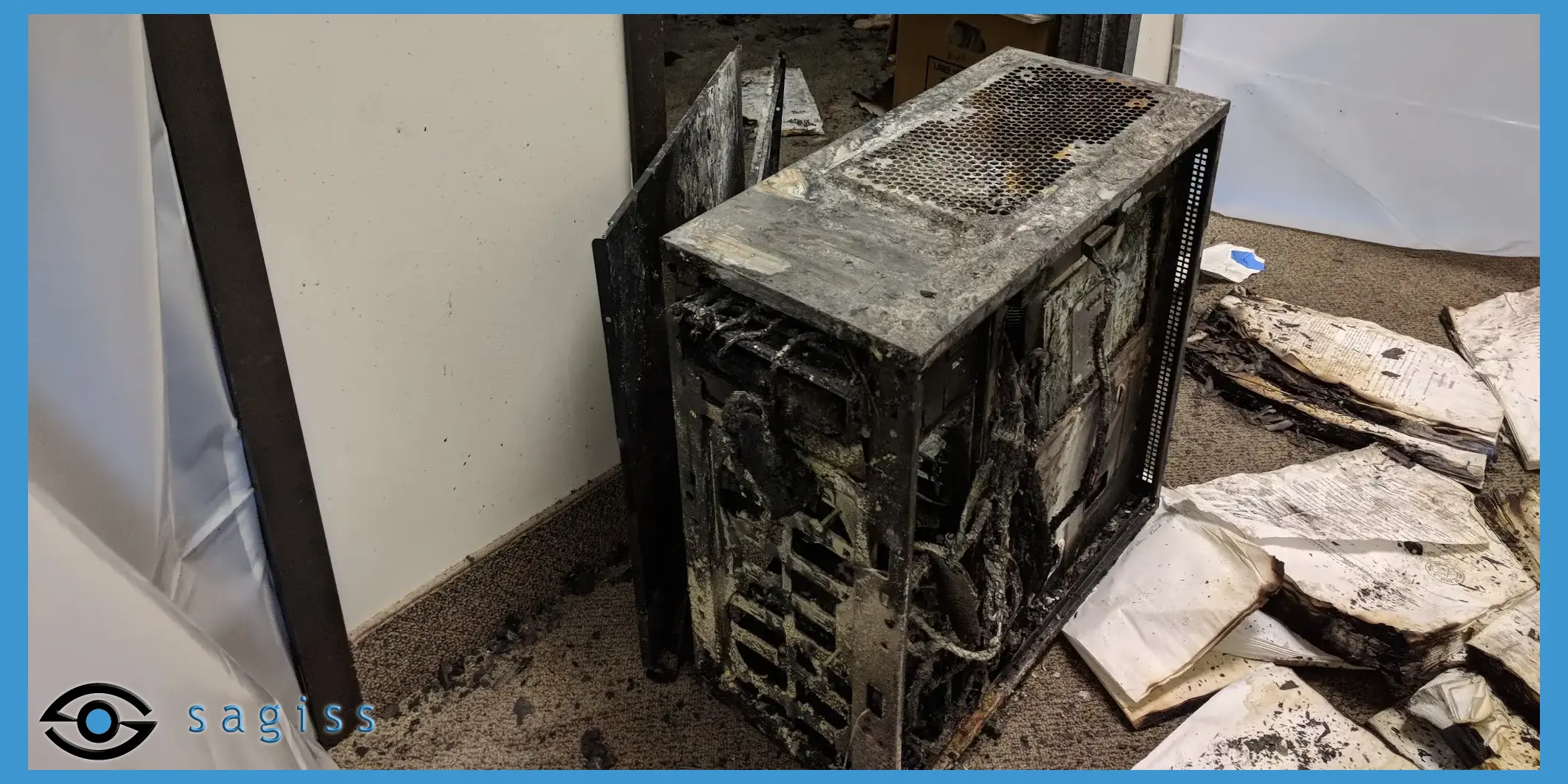3 min read
What is cyber liability insurance and why is it so important?
Published: April 4, 2022 Updated: April 10, 2024

The increase of cyber attacks has made cyber liability insurance a necessity for nearly every business. Yet many businesses still don't understand why cyber liability insurance is so important.
What is cyber liability insurance?
Travelers defines cyber liability insurance as follows:
Cyber liability insurance is an insurance policy that provides businesses with a combination of coverage options to help protect the company from data breaches and other cyber security issues.
Basically, a cyber liability insurance policy can help with covering your financial liability in the case of an event such as a data breach, emotet infection, email compromise, or other type of threatware.
The unfortunate truth is that cyber liability insurance premiums are likely to continue increasing even in the best-case scenario. (Amazingly, Sagiss President Karl Springer was able to get premiums lowered by taking the time to educate our policy provider! Proof in the podcast episode on MSP Zone below.)
The last couple years have seen a record number of hacks, which have resulted in record payouts for insurers. Naturally, insurers react by raising the premiums for their customers.
Or your company may lose cyber liability insurance coverage altogether.
Cyber liability insurance can be overwhelming.
For companies who don't live and breathe managed IT, understanding the details of cyber liability insurance policies can seem a scary and unforgiving frontier.
In addition to increasing premiums, insurers are increasing their standards for cyber liability insurance coverage. In decades past, a company may have been able to get coverage by implementing security protocols as simple as multi-factor authentication (MFA). However, as the number of attacks have grown, so too have the standards that insurance providers require their customers to follow to qualify for coverage.
Insured companies may be unfamiliar with the requirements and therefore unable to say what standards they are or are not following.
Some companies may choose to guess or fib about their security measures on their applications. But we do not recommend this strategy. While insurers used to ask only a handful of questions and take applicants at their word, many insurers now use investigative tools and methods to verify their customers' answers. And as is the case with most other types of insurance, a wrong answer can lead to a lack or drop of cyber liability insurance coverage.
Who needs cyber liability insurance?
It's hard to imagine a scenario in which any business does not need cyber liability insurance. Even the smallest business likely operates online. Any business that has external clients most likely has data on those same clients, making the business a target for attacks.
Threat actors typically don't target specific businesses as much as they cast a wide net and see what they can catch. So theoretically, anyone can fall victim to an attack.
Is cyber liability insurance all your company needs?
Businesses should do all they can to improve their managed security, regardless of insurance status or coverage.
Being financially covered by a cyberattack isn't the same as being digitally protected. Even the best insurance policy can't guarantee that your data and systems can be restored in a timely manner, or at all. (Make sure your business has a data backup and disaster recovery plan in place.)
At the least, cyber events lead to downtime and productivity loss that can never be recovered.
And there are the reputational costs to consider. The stigma of a major breach will stick with a company for years after an incident. Look no further than Equifax for an example of why your company wouldn't want to be linked to questionable security.
Also consider that you should expect even higher cyber liability insurance premiums if you ever have to make a claim. Insurance is one of those things you pay for and hope you never have to use—cyber liability insurance is no different.
Why is cyber liability insurance important?
You've heard the horror stories of people who lost their homes in a flood. They try to make a claim, only to learn that standard homeowner's insurance doesn't cover flood damage—that's what flood insurance is for. And you would expect smokers to have higher life insurance premiums than non-smokers, right?
Many of the rules that apply to everyday types of insurance also apply to cyber liability insurance.
You shouldn't wait until a cyber attack occurs to find out if the event is covered by your existing policies. And you don't want negligible security practices to lead to higher cyber insurance premiums.
How can a managed service provider help with cyber liability insurance?
Navigating the ins and outs of cyber liability insurance doesn't have to fall on your company's shoulders.
A certified managed service provider can review your cyber liability insurance application to help you understand which security measures you already follow and whether you are in compliance with your cyber liability insurance policy. The managed service provider can also explain how increasing your security can keep your premiums from getting out of control.
 Jake LaCaze
Jake LaCaze